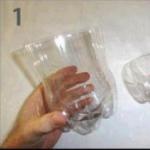Why do you have a headache before your period, and how to deal with it? This symptom is quite common and worries many women. of different ages. This symptom appears the day before or 2-10 days before menstruation. Menstrual migraine also often bothers women and is characterized by more intense pain. This symptom is part of the symptom complex that develops in a condition such as PMS. More than 60% of women of all ages suffer from headaches during menstruation.
Severe headaches before menstruation in women can be caused by the following reasons:
- hormonal changes in a woman’s body during the menstrual cycle. Before menstruation, there is a sharp decrease in estrogen and progesterone, which were previously at a fairly high level, which can provoke a headache or migraine;
- violation water-salt metabolism. As a result of hormonal changes in a woman’s body, fluid retention is observed in all tissues. As a result, swelling of the lower extremities and other parts of the body occurs. Headache during menstruation, which is localized in the temples, back of the head, crown of the head, is provoked by such negative processes;
- taking oral contraceptives. When using hormonal pills, there is an increase in the concentration of estrogen in the blood, which provokes the appearance of unpleasant symptoms;
- prostaglandin disorders. They lead to sudden changes in mood and cause headaches.
What symptoms indicate headache before menstruation?
Regardless of the reason that led to headaches appearing during menstruation, they manifest themselves with approximately the same symptoms:
- the appearance of pulsation in the temples, back of the head or other parts of the head;
- headaches during menstruation have a wave-like character. At first, the unpleasant sensations may be subtle, after which significant discomfort appears;
- pain may spread to the eyeball area. There are characteristic tremors felt there;
- alternating increases and decreases in blood pressure;
- severe nausea, which can provoke vomiting;
- photophobia;
- dizziness;
- numbness and swelling of the limbs;
- painful sensations in the region of the heart;
- increased sweating;
- frequent mood swings, depression, depression, unreasonable aggression;
- sleep disturbance. The woman experiences severe sleepiness during the daytime;
- feeling of weakness, increased fatigue;
- swelling of the mammary glands, tingling sensation in them;
- aching in the lower back;
- digestive disorders, accompanied by diarrhea and bloating.

Menstrual migraine is manifested by even more severe pain, which can last for several hours or 1-2 days. The reasons for this phenomenon are the same – hormonal changes in a woman’s body. Menstrual migraine is accompanied by unbearable throbbing pain, which is most often localized only on one side of the head. If it occurs in a woman during her period, she should consult a neurologist. This condition requires specific treatment.
How to deal with headaches correctly?
The above symptoms of PMS (premenstrual syndrome) can accompany a woman every month, or be observed only in some cases. Menstruation will be painful if there are certain hormonal imbalances.
If a woman has a particularly severe headache during her period, she should consult a doctor. It is important to carry out a comprehensive examination of the body to exclude serious pathologies.

If a migraine occurs during menstruation, a woman can improve her condition in the following ways:
- taking medications. You can get rid of pain before menstruation by using special painkillers. In this case, a positive effect is observed from Spasmalgon, Ibuprofen, Diclofenac, Naproxen, Tempalgin and others. If you regularly have a headache before menstruation, you need to start taking these medications 1-2 days before the expected menstrual bleeding;
- hormonal therapy. Taking medications containing estrogen a week before the expected menstruation. Also, some doctors recommend using a special patch. It is glued to the skin, which allows the right amount of estrogen to enter the blood. This eliminates the severe headaches that many women suffer just before the onset of menstruation;

- diet. Some foods in a woman’s diet provoke pain before menstruation. These include chocolate, smoked food, sausages, blue cheese, alcohol, and nuts. It is also necessary to limit the consumption of salt as much as possible, which provokes fluid retention in the tissues. Also at this time you should try not to drink coffee, as it provokes and worsens headaches:
- cold treatment. If you have a severe headache, you can apply a compress to the problem area. Exposure to cold will eliminate the inflammatory process and vasospasm that is characteristic of this condition. The compress should be kept for 10-15 minutes;

- if headaches are caused by taking oral contraceptives, you need to consult a doctor to find other pills that will not cause such an unpleasant symptom;
- It is recommended to massage the entire body. As a result, the muscles will relax, which will lead to a significant improvement in the woman’s condition;
- lavender oil You can inhale it using a few drops. It is also recommended to massage your temples by dipping your fingers into this oil.
Prevention of headaches
You can prevent the occurrence of migraines during menstruation in the following ways:
- giving up bad habits. Smoking and drinking alcohol negatively affect a woman’s well-being, especially before the onset of her next menstruation;
- need as much time as possible fresh air. Walking in the park and jogging in the morning have a positive effect on women's health;
- it is necessary to eat properly, exclude from the diet excessively fatty, salty foods, foods containing preservatives and harmful food additives;

- It is recommended to play sports. At the same time, excessive physical activity Not in the best possible way will affect women's health. It is best to choose a swimming pool, fitness classes, tennis, skiing or skating;
- a woman must adhere to a certain regime. You need to go to bed before midnight or earlier. It is also recommended to get up at the same time, which allows you to feel maximum vigor and energy;
- it is necessary to eliminate possible vitamin deficiency. You need to consult a gynecologist, who should prescribe a specific vitamin and mineral complex. Taking such drugs will compensate for the deficiency of all nutrients, which will improve the woman’s condition before menstruation and at any other time;

- It is recommended to regularly visit a gynecologist in order to promptly identify all kinds of female problems. Prevention and timely treatment of diseases of the genitourinary system will relieve possible pain when menstruation occurs;
- has the best effect on women's well-being good mood and positive infusion. If possible, you need to avoid negative emotions, fight stress and apathy.
Adhering to such simple rules, you can prevent the occurrence of migraines during menstruation or significantly reduce its intensity.
Headaches during menstruation are a common symptom. Its appearance indicates possible disturbances in the cardiovascular system, excretory organs, intestinal functioning, or.
The appearance of headaches during menstruation is characteristic of a number of unhealthy conditions. The disease is not diagnosed in the initial stage, but pain indicates the presence of pathological changes. What diseases manifest themselves as headaches during or before menstruation?
- vascular diseases: loss of elasticity, spasm of vascular walls;
- poor intestinal peristalsis, accumulation of deposits;
- osteochondrosis cervical spine spine;
- hormonal imbalance.
Headache during menstruation may be a consequence of vascular disorders. This is especially evident during menstrual periods due to excessive stress on the blood vessels. During this time, the body adjusts to excretion. Existing waste products are partially washed out and released into the blood. A general blood test on the days of the menstrual cycle shows increased level ESR and the presence of inflammation in the body. A few days later, when menstruation ends, the blood composition returns to normal and the headache goes away.
During menstruation, blood movement through the vessels is activated. If the vessels are not elastic enough, they cannot respond to increased blood flow. There is a feeling of pain in the head.
Other vascular problems are associated with spasm (tightness) of the walls of blood vessels. Constant spasm of blood vessels causes oxygen starvation of the brain and migraines during menstruation.
Caffeine and aminophylline help relieve spasms and dilate blood vessels. That's why a cup of coffee is a popular remedy for headaches during menstrual periods.
Poor bowel function
Headache during menstruation may be a consequence of internal intoxication. During menstruation, waste products present in various organs are released into the blood. The body is cleansed. The blood flow accelerates in order to remove the resulting ballast. The blood discharges ballast and harmful substances into the intestines, where they are collected in feces and excreted during bowel movements. If the intestines are clogged with sediment, its peristalsis is weakened, and it is unable to fully remove toxins. Their reverse absorption occurs, the blood carries them to organs and tissues. This phenomenon is intoxication. Toxic substances from the intestines enter the brain through the blood, internal organs, muscle tissue. That's why not only your head can hurt during your period. Weakness or aches throughout the body are often felt.
The physiological process of internal cleansing begins before menstruation. When the body cannot cope with the removal of toxins, the headache before menstruation is the same as during menstruation.
To reduce headaches, intestinal cleansing measures help: laxative herbs and cleansing enema.
Osteochondrosis

Cervical osteochondrosis is the cause of frequent headaches during menstruation. With osteochondrosis, changes occur in the vertebrae: salt shoots (osteophytes) appear. They compress blood vessels (carrying blood to the brain) and nerve fibers (connecting the brain center with other organs). Between menstruation (which is physiological stress), the body adapts, pain is not felt. On critical days, the adaptive reaction is not enough. The brain and other organs require increased amounts of oxygen. And a compressed vessel is not able to ensure its supply. Appears.
Lack of oxygen causes dizziness and loss of consciousness. Dizziness during menstruation is less common, but is also a consequence of an exacerbation of an existing disease.
Menstrual headaches associated with osteochondrosis can be treated with a massage of the neck and shoulder area and exercises for the cervical spine.
Anemia is a blood disease. With anemia, there are not enough red blood cells (carrying oxygen) in its composition. Since the brain requires more oxygen on critical days, the effects of anemia are more pronounced and cause headaches. You can only get rid of pain with long-term therapy. To treat anemia with natural preparations, fresh green juice or green salads are used. They supply green chlorophyll, which is an analogue of the red blood cell molecule.
Hormones
In some cases, the appearance of headaches during menstruation is a consequence of hormonal imbalance in a woman’s body. As a rule, such changes are observed after forty years. With the onset of menstruation, production and their ratio change, as a result of which blood flow increases and fluid is retained inside the body. If tissue elasticity is insufficient ( age-related changes), swelling and hypertension occur. Due to edema, the brain is compressed and signals its own discomfort with pain (in the occipital and parietal regions).
A remedy for hormonal pain is diuretics, diuretic tea and herbs. They remove fluid and reduce headaches.
What can I do to prevent headaches during menstruation?
In order to get rid of the headaches that accompany menstruation, you need to improve your body. The following activities will help in overall health:
- Cleansing the digestive system (intestines and liver, performed with enema, herbs).
- Saturation of tissues and systems with vitamins. With a sufficient amount of vitamins and microelements and a reasonable diet, cleansing occurs unnoticed constantly. Natural sources of vital substances: fresh juices, honey, bee pollen, mumiyo, nuts, green herbs.
- An active and feasible lifestyle prevents the deposition of toxins in various tissues.
The main causes of headaches during menstruation are three factors: oxygen starvation of the brain, toxic poisoning, and physiological compression of the brain due to swelling of nearby tissues. The listed factors manifest themselves in various diseases of blood vessels, intestines, joints and vertebrae.
Read also
Related articles
Such a nuisance as a migraine before, during and after menstruation often worries women. The reasons why headaches are not fully understood, but a certain pattern can be traced.

Very often, women experience various types of ailments after menstruation. Among others, there is dizziness or a headache after menstruation. Doctors use the term “menstrual migraine”.
This pain can be confused with pain due to increased blood pressure and conventional painkillers often do not help. In the absence of a delay, this happens every month, and the cause of these ailments is an increase in the level of testosterone in the blood.
Consider the symptoms of menstrual migraine
The most common symptoms are pain in the temporal part of the head, often cyclical in nature, and nagging pain in the lower abdomen. These symptoms are accompanied by irritability, inattention, and even short temper. This prevents a woman from communicating with people around her, working and doing everyday activities, as she becomes irritable and the perception of new information decreases by up to 10%. Such pain is also called cephalgic pain.
Headaches are most often localized in the temples and forehead, and can last for a long time. In this case, a woman may experience discomfort in the eye area, she is afraid of loud noise, bright light, strong odors, and almost everything irritates her. There may be changes in venous pressure, which can cause pain in the chest area and heart rhythm disturbances. There is also pain in the lower abdomen, aching joints, back, increased sensitivity of the mammary glands, and sweating. Problems with the gastrointestinal tract arise, nausea, bloating and even vomiting are observed.
The most common causes of menstrual migraine
In order to find out the cause of headaches after menstruation, you first need to understand the mechanism of the menstrual cycle itself.
On the 13-15th day of the cycle (this period is individual for everyone), there is a significant increase in the level of the hormone in the blood, this means that the egg is preparing for fertilization and moves on to the ovulation stage, it is during this period that a woman can become a mother. There is a significant decline in the hormone testosterone and is replaced by progesterone, a hormone that promotes conception. And if the body has not been fertilized, a sharp decline in hormones is observed and the egg is rejected, which is accompanied by menstrual flow.
Naturally, such a sharp change in hormonal levels adversely affects the condition of the body and, in particular, the condition of the blood vessels of the brain. Women who are more susceptible to hormonal influences experience headaches and premenstrual syndrome.
Another, quite important, reason is a failure in the water-salt balance system in a woman’s body. In order to get rid of an unfertilized egg and uterine cells during menstruation, the body must accumulate a sufficient amount of fluid. Symptoms that are often identified include:
1) The joints become swollen, causing mobility to deteriorate.
2) Hands and feet swell.
3) Slight swelling of brain tissue is possible.
4) Against the background of all the symptoms, a delay is possible.
One of the most dangerous symptoms of a sudden drop in pressure may be brain swelling. It is characterized by throbbing and pressing pain in the back of the head and temples. But most often this pain is due to vascular spasm, since the vessels can shrink, and after menstruation they expand very sharply. If the vessel spasms, this may indicate diseases of a neurological and autonomic nature.
Treatment and prevention of pain after menstruation
Unfortunately, many women do not believe that menstrual pain and pain after menstruation need to be treated. Only hormonal imbalance and delay, in their opinion, are worthy of seeing a doctor. But why disappear from life for 2-3 days every month and endure cephalgic pain when you can turn to a specialist for help. In such cases, it is recommended to contact two specialists, such as a neurologist and, of course, a gynecologist; you need to undergo diagnostics to find out what is causing the pain.
To begin with, they may prescribe vitamin-mineral complexes for the general maintenance of the body, homeopathic and herbal medicines, which are taken throughout the entire cycle, to stabilize hormonal levels.
In more severe cases, hormone therapy and contraceptives are prescribed, which, like herbal medicines, but stabilize the hormone level much faster and correct the functioning of the hormonal glands.
It is very important to monitor your lifestyle, eat right, rest, sleep at least 7-8 hours a day, walk in the fresh air, and exercise, but at the same time exclude heavy physical activity. You also need to eliminate all bad habits (smoking, alcohol, coffee). It is useful to attend SPA treatments, monitor your background emotional state(exclude stress and all sorts of worries), take vitamin and mineral complexes, but as for the sauna and steam bath, it’s better to give them up for now.
I would like to look at nutrition in more detail, since our well-being often depends on what we eat. It's hard to believe, but some foods can cause migraines and even delay menstruation. Spicy, ascorbic acid, fatty, smoked, chocolate, marinades, flour and this is not the whole list of what can increase hormone levels. Caffeine, found in coffee and green tea, may help relieve pain, but large quantities may cause a delay.
Products that you need to include in your diet: fresh vegetables (carrots, broccoli, cauliflower, pumpkin, spinach, turnips), walnuts, sesame seeds, buckwheat, wheat and oatmeal, black bread, unrefined vegetable oils.
Also, to relieve symptoms, doctors prescribe non-steroidal anti-inflammatory drugs, they will help relieve pain and inflammation, for example ibuprofen, aspirin. Zolmitriptan will help cope with migraines, but the drug is a prescription drug, so the appropriateness of use and dosage must be agreed with a neurologist.
Lavender oil is considered a good sedative and can easily cope with headaches; you can add a couple of drops of oil to hot water, and breathe in the vapors, covering your head with a towel. Or put an aroma lamp in the room, then the smell of lavender will spread throughout the room, and the sight of a burning candle will be additionally soothing.
If you don’t have any means at hand, you can just wet a towel cold water and apply to the forehead, this will relieve inflammation and relieve pain.
And you need to remember that headaches after menstruation can be caused by incorrectly selected medications: intolerance or allergies, water-salt imbalance. To avoid this, first you need to drink about 1.5-2 liters clean water, forget about carbonated and sweet drinks, foods that can cause swelling, and excessively salty foods. And I also want to remind you once again about the importance of taking the right medications, no self-medication.
Most women during menstruation experience body aches, aching pain in the lower abdomen, rashes, sudden mood swings, and indigestion. A severe headache may also occur.
Migraines often bring unbearable suffering and spoil a woman’s quality of life. But why do you get a headache during your period?
Features of the female body
Once a month during ovulation on the 12-15th day of the cycle female body is at the peak of readiness to conceive a child. Estrogens and progesterone, the hormones responsible for fertilization, are released into the blood.
If a woman does not become pregnant, the egg is rejected. The concentration of hormones is reduced by natural menstrual bleeding.
Sharp fluctuations chemical composition blood affect the condition of the blood vessels of the brain, causing spasms and pain. For the same reason, I often feel sick during menstruation.
Individual sensitivity to hormonal fluctuations is the most common cause of migraine attacks during menstrual periods.

Causes of headaches
Headaches during menstruation can occur for a number of reasons:
- electrolyte imbalance. During menstruation, a woman's body suffers from significant blood loss. Trying to equalize the water-salt balance, the body actively accumulates fluid in the tissues. Often headaches during menstruation occur as a result of swelling of the brain
- vascular diseases. Critical days provoke increased blood flow. Violation of the elasticity of blood vessels, or their spasm explains why headaches occur during menstruation
- overwork, stress, lack of sleep
- seasonal weakening of the body
- poor bowel function leads to internal intoxication, causing headaches during menstruation. During this period, the body tries to remove toxins and cleanse itself. With the bloodstream, ballast substances are delivered to the intestines, forming feces. When slagging occurs, intestinal motility is disrupted and harmful substances are reabsorbed. When poisoned by toxins, your head may hurt. The use of laxative herbs and cleansing enemas helps to remove toxic waste products
- a decreased concentration of red blood cells in the blood (anemia) leads to oxygen starvation brain tissue and causes severe headaches
- Taking hormonal contraceptives provokes surges in estrogen in the blood
- Due to emotional instability, you may get a headache during menstruation
- menopause provokes headaches and during menstruation the causes of such migraines lie in hormonal fluctuations
Symptoms
Menstrually associated headaches are accompanied by a number of symptoms that are also characteristic of true migraine. These two types of attacks are classified as migraines without aura:
- headache and nausea, throbbing pain, spreads to the eyes, neck, intensifies with the least irritation
- attacks can last up to 72 hours
- photophobia, hypersensitivity to smells and sounds develops
- surges in arterial and venous pressure
- depressed mood
- drowsiness or agitation
Journaling
If you have a headache during red days, keep a diary. This will help track the relationship between the occurrence of migraines and the menstrual cycle. It is necessary to record in detail everything that happens to the body.
It is necessary to celebrate the appearance discomfort in the chest, lower abdomen, mood changes. Even food preferences at one time or another can tell about a woman’s condition.
The headache attack during menstruation is described in detail, and the slightest features of the cycle during this period are noted. The time of onset of the attack, duration, what medications were taken, and what drug was used to achieve the therapeutic effect should be indicated. It is important to notice and take note of the influence of any external non-hormonal factors that provoke the onset of migraine.
If you keep records for several months, you will be able to figure out why during menstruation you have a headache, nausea, and a semi-fainting state.
How to deal with menstrual migraines
The availability of effective migraine medications makes it possible to relieve headaches during menstruation. It is advisable to seek help from a gynecologist-endocrinologist and neurologist. After research, the specialist will advise what to do if a migraine occurs and prescribe a set of medications to improve the condition. These are mainly vitamin preparations, as well as hormonal correctors.
Symptomatic treatment is carried out with the following drugs: Nurofen, Aspirin, Ibuprofen, Solpadein, Zolmitriptan. The dosage and duration of administration are prescribed by the doctor.
To eliminate headaches during menstruation, you can use essential oils lavender, mint, sandalwood, eucalyptus and rosemary. To achieve a therapeutic effect in a container with hot water add 3-4 drops of oil and inhale the vapors.
Prevention
To prevent menstrual migraines, there are a number of general recommendations:
- reduction in physical activity
- relaxing massage of head, neck, shoulders
- walks in the fresh air
- giving up alcohol, increasing consumption of plain water
- reducing the consumption of smoked meats, spicy and fatty foods
- yoga classes, breathing exercises
- proper diet and sleep patterns
- minimizing worries and stress
- regular exercise
- it is important to treat vascular diseases in a timely manner
When using hormonal contraceptives, it is recommended to take low-estrogen preparations or switch to progesterone-based contraceptives. Together with your doctor, you need to choose the right drug. When using an incompatible contraceptive, you often get a headache with the onset of your period.
Diet
To reduce the likelihood of menstrually associated migraines, it is recommended not to consume certain food products during menstruation, namely:
- chocolate
- sausages
- pork and beef
- animal fats
- milk
- coffee, tea in large quantities
Enriching your diet with nuts, wheat cereals, fresh vegetables, and sesame seeds will help prevent headaches during menstruation.
There is no need to suffer from headaches during your period. Today pharmacology offers a lot effective tools to stop attacks. After a detailed examination, a competent doctor will select suitable medications and help identify hidden disorders in the body.
Many women suffer from headaches during menstruation, which can begin in the first days of menstruation and continue for several days afterward. The intensity of a headache can vary - from a simple feeling of discomfort to spasmodic pain that prevents you from leading your usual lifestyle.
Headache during menstruation can be caused by a number of reasons, but most often it is a sign of hormonal imbalance. So, during this period the concentration of prostaglandin in a woman’s body increases. This is a hormone-like substance present in various tissues and fluids of the human body (in the uterus and brain inclusive). Prostaglandin causes contraction of smooth muscles (including the muscles of the uterus and fallopian tubes). Normally, prostaglandins are distributed evenly throughout the uterine tissue; in this case, muscle contractions are absolutely not painful. But if prostaglandins are found throughout the uterus in different concentrations (and this usually happens in women over 30 years old), then they lead to uneven contractions of its walls, and the more they accumulate in the tissue, the stronger the pain.
What to do if you have a headache during your period?
- Drug intervention
It is possible to use during menstruation some anti-inflammatory non-steroidal drugs (Aspirin, Ketazone, Ketoprofen, Nifluril, Piroxicam, Nise, Dicloberl), which slow down or prevent the synthesis of prostaglandins. It is important to remember that these drugs do not just relieve pain, but are a method of treating pain syndromes. Therefore, you should not self-medicate. In addition, prostaglandins are responsible for regulating the formation of mucus in the stomach. The use of non-steroidal anti-inflammatory drugs reduces its amount, and the protection of the stomach walls from the action of hydrochloric acid and pepsin contained in gastric juice is reduced, which leads to the formation of peptic ulcers. It is also recommended to take courses of magnesium preparations (Magne B6, Magvit, Magnefar). Consult a doctor who will select the appropriate medications for you and draw up a course of treatment.
- How to be treated without drugs
Headaches during menstruation may disappear completely without the use of medications. Strive to eat healthy. Be sure to include fish, soy, legumes, and seafood in your menu. Pay special attention to foods rich in vitamins C and E. Consult your doctor about the rationality of taking multivitamins with minerals.
Before menstruation and during the period itself, it is recommended to reduce the consumption of foods containing sodium and salt and increase the amount of calcium and magnesium in food, which help reduce pain. Do not drink carbonated water, avoid excessive consumption of sweet, starchy, salty, and spicy foods. Also try not to overeat at night.
Say "No!" alcohol, strong tea and coffee. Try something tonic, such as fruit juice or green tea. Perhaps mild diuretic drinks - rosehip decoctions, uzvar or apple juice - will also help.
Lead healthy image life. Engage in light active sports, play outdoor games, or at least walk more. Don't lift heavy weights.
A general relaxing massage and massage of the cervical-collar area, a visit to the solarium and sauna will be useful (though not in menstrual days). Try taking a relaxing bath or contrast shower, and in addition, drink a chamomile infusion.
Dedicate this time to yourself - get enough sleep in silence and take a walk in the fresh air!





